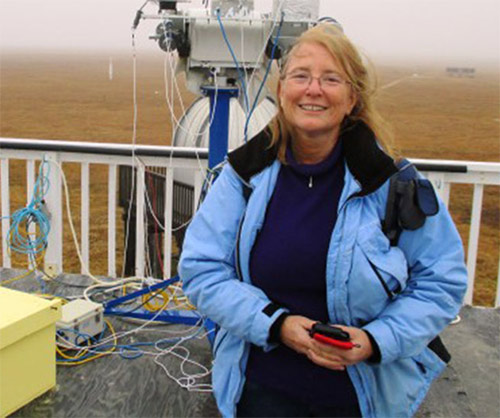Leslie Field: Climate change fixer
 Leslie Field (M.S.’88, Ph.D.’91 EECS) founded the nonprofit Ice911 with the goal of developing technologies to slow the decline of polar ice sheets. For Field, a chemical and electrical engineer by training, coming up with a solution to mitigate the ever-widening effects of global climate change is an engineering challenge.
Leslie Field (M.S.’88, Ph.D.’91 EECS) founded the nonprofit Ice911 with the goal of developing technologies to slow the decline of polar ice sheets. For Field, a chemical and electrical engineer by training, coming up with a solution to mitigate the ever-widening effects of global climate change is an engineering challenge.
Thinking herself as an inventor from age 10, Field studied chemical engineering at MIT before working at Chevron on reducing the lead from vehicle emissions in the 1970s. Then Field made the pivot to electrical engineering and enrolled in a graduate program at Berkeley, eventually landing a job at Hewlett Packard working on micro-electro-mechanical systems.
Field made another pivot in the early 2000s and started her own company called SmallTech Consulting in 2005. About that time, Field began teaching a course at Stanford that combined climate change, entrepreneurship and engineering, which led to more thinking about the role of technology in mitigation strategies.
Field views her work at Ice911 as a stop-gap solution to halt sea-level rise while more permanent climate change solutions are implemented. In the meantime, Field and her organization are developing specially-coated sand-grain-sized glass spheres that can be added to pack ice to boost its reflective capabilities.
Field is aware of the risks of geoengineering — developing interventions to mitigate the impact of climate change — which is why she is insistent that any solution Ice911 comes up with can be reversed if necessary.
“Our growing team is working on this as fast as we can, and with hope that this is just in time,” she said during an interview with Berkeley Engineering last year.
< Back to previous page